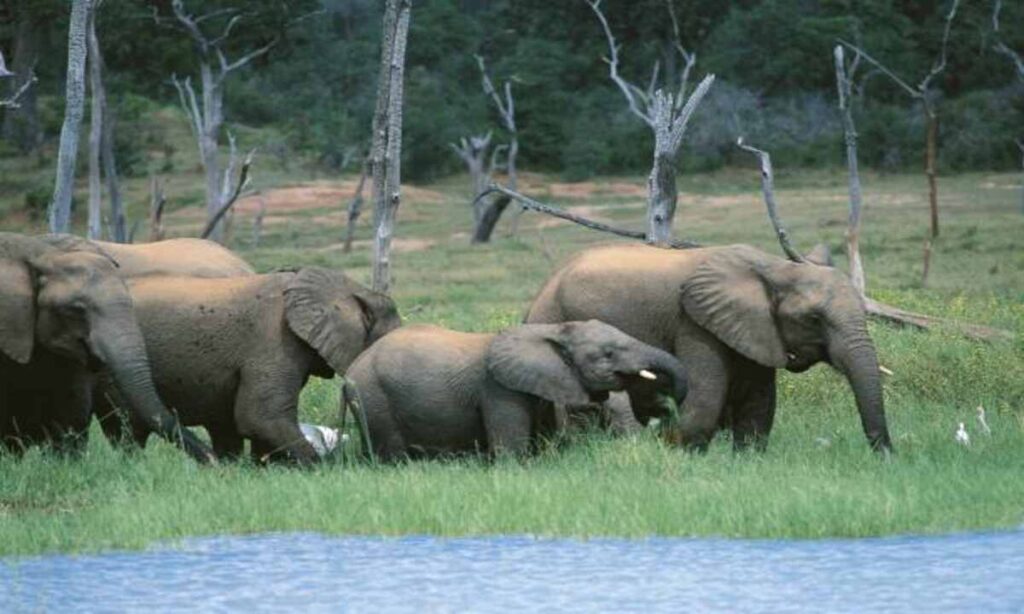
Zimbabwe to cull 50 elephants amid population crisis; meat to aid struggling rural communities. Pic: Zimparks/Gettyimages
(EPICSTORIAN) — The Zimbabwe Parks and Wildlife Management Authority (ZimParks) has announced the planned elephant cull of 50 animals in the Savé Valley Conservancy, citing unsustainable elephant numbers that threaten the reserve’s delicate ecosystem.
This move aims to relieve rising environmental pressure and address human-wildlife conflict that has escalated in recent years.
An aerial wildlife survey conducted in 2024 revealed the presence of 2,550 elephants in the conservancy, far exceeding its ecological carrying capacity of 800 elephants.
Despite relocating 200 elephants over the past five years, ZimParks stated that relocation alone is not sufficient to maintain ecological balance.
“This is about managing the population to prevent ecological damage while also supporting local communities,” said ZimParks in a statement. “Meat will be distributed to residents, while ivory remains government property.”
Elephant Cull Efforts Provide Food and Improve Community Safety
The elephant cull operation will serve dual purposes—protecting the environment and providing food security.
Local communities impacted by prolonged drought and elephant crop destruction will receive meat from the culled animals, continuing a model used during Zimbabwe’s 2024 drought when 200 elephants were culled for similar reasons.
Zimbabwe, which hosts Africa’s second-largest elephant population after Botswana, has seen a rise in human-elephant conflict, particularly during dry seasons.
Also Read: Ezekwesili appointed advisor to Club de Madrid
Elephants are increasingly encroaching on villages in search of food and water, a phenomenon attributed in part to climate-driven habitat shifts.
To address this, authorities have implemented a GPS tracking program using the EarthRanger platform. The system alerts villagers when elephants approach populated areas, but due to limited collaring, coverage remains partial.
Elephant Cull Spurs Mixed Reactions Among Conservationists and Residents
While the government views the elephant cull strategy as a practical ecological and humanitarian response, wildlife advocacy groups remain critical.
Tennyson Williams, Africa Director of World Animal Protection, warned that such measures could reignite poaching and the illegal ivory trade.
“This decision risks undermining years of conservation progress,” Williams told Le Monde.
Also Read: Ghanaian Robber Sentenced to 20 Years in Prison in Upper West
On the other hand, community leaders have expressed approval of the initiative. In a post from the Community Leaders Network, a villager wrote:
“As someone living alongside elephants, I welcome the cull. During droughts, they destroy our crops. This helps us survive.”

